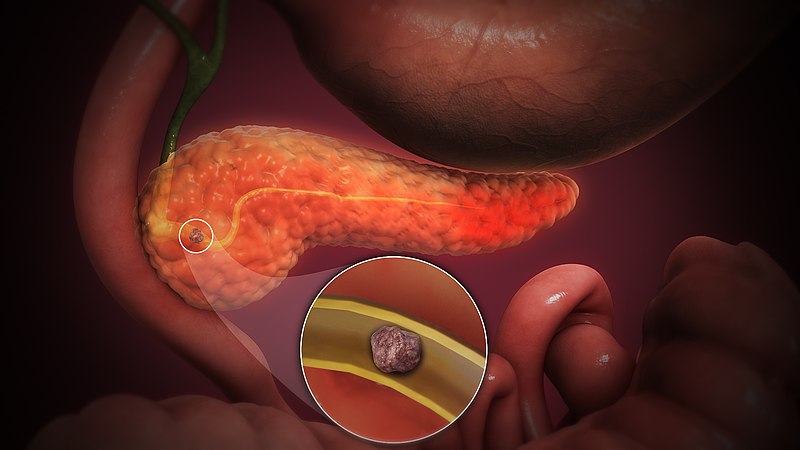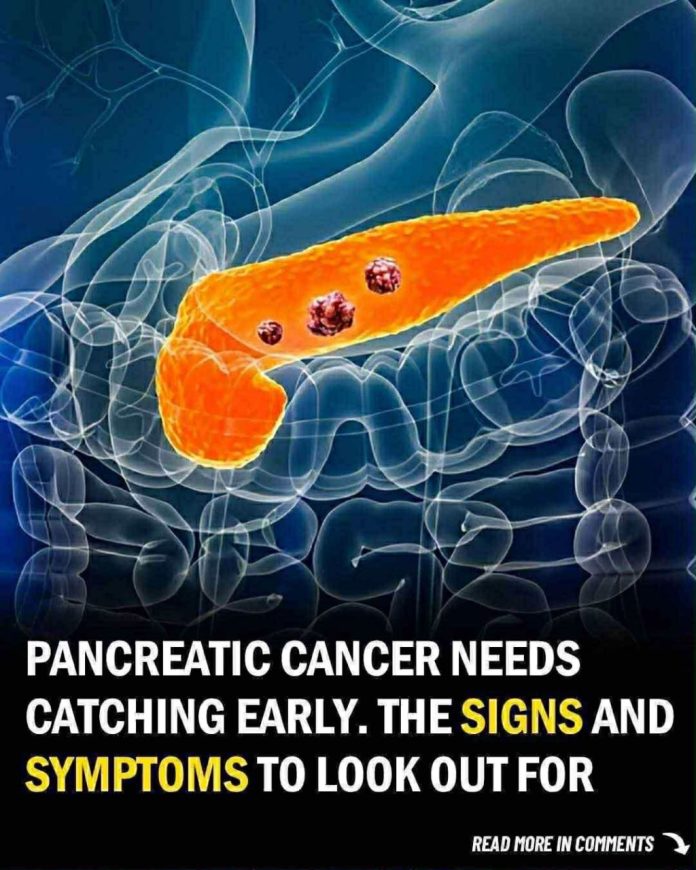Pancreatic cancer is a serious and often life-threatening disease that affects thousands of individuals every year. It has a low survival rate, mainly because it is often diagnosed at an advanced stage. This means that being aware of the signs and symptoms can help detect it early, increasing the chances of successful treatment.
1. Unexplained Weight Loss
Sudden and unintentional weight loss, especially if accompanied by a loss of appetite, can be an early sign of pancreatic cancer. This occurs because the cancer disrupts the body’s ability to digest food and absorb nutrients effectively.
2. Jaundice
Yellowing of the skin and eyes, known as jaundice, can occur due to the buildup of bilirubin, a pigment produced by the liver. This can be a sign that pancreatic cancer is blocking the bile duct.

3. Abdominal Pain
Chronic or unexplained abdominal pain, which may radiate to the back, can be a sign of pancreatic cancer. The pain can be mild or severe and may worsen after eating.
4. Digestive Problems
Pancreatic cancer can affect the ability of the pancreas to produce digestive enzymes, leading to indigestion, diarrhea, or oily, foul-smelling stools.
5. New-Onset Diabetes
Pancreatic cancer can disrupt the production of insulin, resulting in new-onset diabetes or difficulty controlling existing diabetes. This occurs because the cancer affects the pancreas’s ability to regulate blood sugar levels.
6. Fatigue
Persistent fatigue or weakness, not related to physical activity, can be a symptom of pancreatic cancer. This may be due to the body’s response to the cancer or a result of nutritional deficiencies caused by impaired digestion.
7. Changes in Bowel Movements
Pancreatic cancer can lead to changes in bowel habits, such as diarrhea or constipation. Additionally, stools may become light-colored or greasy, indicating malabsorption of fats due to insufficient digestive enzymes.
8. Itchy Skin
Itchy skin can occur due to the buildup of bile salts in the bloodstream, a condition associated with jaundice. This symptom may be more noticeable in individuals with lighter skin tones.
9. Blood Clots
Pancreatic cancer can increase the risk of developing blood clots, which may manifest as swelling or pain in the legs. These clots can be life-threatening if they travel to the lungs or other vital organs.
10. Loss of Appetite
A persistent loss of appetite can be an early sign of pancreatic cancer. This may be due to the body’s response to the cancer or a result of digestive issues caused by the tumor.

Conclusion
Pancreatic cancer is a challenging disease to detect early due to its subtle and often overlooked symptoms. Being aware of these signs and seeking medical attention promptly can lead to earlier diagnosis and more effective treatment options. If you experience any of these symptoms persistently, consult a healthcare professional for evaluation. Early detection is crucial for improving survival rates in pancreatic cancer. Lifestyle factors such as maintaining a healthy diet, exercising regularly, avoiding smoking, and limiting alcohol can reduce the risk. Regular medical checkups, especially for those with a family history of pancreatic cancer, are essential. Awareness of subtle symptoms can prompt timely testing and life-saving interventions.

















